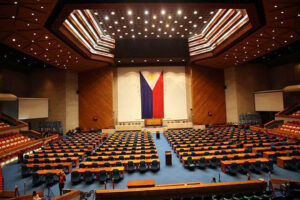
Agencies face queries on how spending will spread wealth
THE House of Representatives will ask government agencies defending their budgets this week to demonstrate how they plan to spread prosperity beyond a few favored segments of the economy, Speaker and Leyte Rep. Ferdinand Martin G. Romualdez said on Sunday.
“Our economic expansion, projected by multilateral financial institutions at between 5.9-6.2% next year, should be felt by our people, especially the poor, in terms of more job and income opportunities, more affordable food on their tables and lower consumer prices,” Mr. Romualdez said in a statement.
Congress is set to begin its deliberations on the proposed P6.352-trillion national budget for 2025 today, Monday, with economic managers first on deck.
The Development Budget Coordination Committee (DBCC) will brief the House on how the macroeconomic assumptions for next year influenced the drafting of the 2025 budget.
Legislators are also set to ask Budget Secretary Amenah F. Pangandaman, Finance Secretary Ralph G. Recto, Socioeconomic Planning Secretary Arsenio M. Balisacan, and Central Bank Governor Eli M. Remolona, Jr. how the proposed budget will work to spur economic growth next year, he added.
The Department of Budget and Management (DBM) last week handed over the 2025 National Expenditures Program (NEP) to the House, proposing to spend the equivalent of 22.1% of gross domestic product (GDP). If borne out, the NEP would be 10.1% higher than the P5.768-trillion budget this year.
The Philippines is expected to surpass the growth of most of its neighbors despite external economic headwinds, the DBCC said in June, setting its gross domestic product growth projection at 6.5-7.5%.
“There is a need to explain how the proposed budget could support economic growth amid concerns by Filipinos that the expansion only benefits the rich, the big companies, and stock and financial market investors,” Mr. Romualdez said.
“If (the) majority of our people do not feel our economic expansion, they should at least see it in terms of the proper use of the national budget for social services, education, health, infrastructure, and direct financial assistance to the poor and other vulnerable sectors,” he added.
In a statement last week, think tank IBON Foundation said that the proposed budget puts the needs of businesses ahead of ordinary Filipinos despite the administration’s claims that it is focusing government resources towards addressing joblessness and poverty.
“Despite the Marcos administration’s claims, the proposed budget spends less on the needs and welfare of the majority of Filipinos while increasing spending on debt service, and infrastructure that disproportionately benefits those already better-off,” it said.
The 2025 proposed budget for the Department of Social Welfare and Development (DSWD) was slashed by 7.2% to P230.1 billion.
Health spending — including funding for the Department of Health (DoH) and the Philippine Health Insurance Corp. (PhilHealth), will receive P297.6 billion of next year’s proposed budget, down 3.5% from this year’s allocation.
Debt service is expected to account for P2.1 trillion in 2025, up 9.1%, according to a document from the DBM.
Infrastructure outlays are expected to dip 0.26% to P1.506 trillion next year.
Going before Congress will be officials from the Philippine Gaming and Amusement Corp. (PAGCOR) and the Philippine Charity Sweepstakes Office (PCSO), who are expected to brief the House appropriations committee on their proposed budgets on Tuesday. They will be followed by the Department of Environment and Natural Resources (DENR) and the Department of Human Settlements and Urban Development (DHSUD) on Wednesday.
On Thursday will be the turn of the Department of Energy (DoE), the Energy Regulatory Commission (ERC), and the Commission on Higher Education’s (CHED).
The House appropriations panel will conduct budget deliberations until Sept. 9, after which the NEP will be hammered out to become the draft General Appropriations Act for plenary action.
The House is seeking to approve the proposed budget in September to give the Senate ample time to deliberate, Majority Leader and Zamboanga City Rep. Manuel Jose M. Dalipe said at a briefing last week. — Kenneth Christiane L. Basilio



